1941
-
Balistreri, Mary Jo
 Mary Jo Balistreri
Mary Jo BalistreriBorn in Duluth, Minnesota, US, 1941.
Living today in Waukesha, WI USJo Balistreri began her creative life as a pianist and harpsichordist. In 2005, she began writing free-verse poetry after losing her hearing and her ability to play music, and in 2015 registered for a mentoring program through the Haiku Society of America. She has since published widely and in 2019 was included in A New Resonance 12. http://maryjobalistreripoet.com/
-
Childs, Cyril
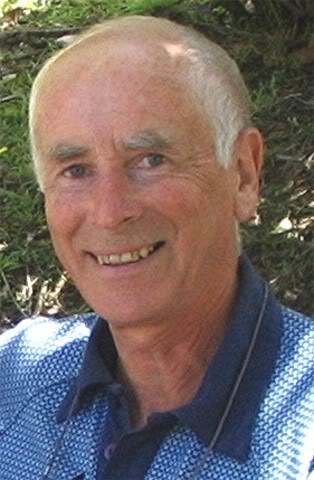 Cyril Childs
Cyril Childs(1941 – 2012)
“I venture to claim that haiku is currently alive and thriving in the Shaky Isles[New Zealand]. To my eyes the future looks rosy - and I’m confident it will be rosy - just as long as the passion for the form and the voluntary efforts evident today are maintained or surpassed in the future.”
(“Haiku 45 South” by Cyril Childs, delivered at the fourth Haiku Pacific Rim Conference (Terrigal, Australia) in September 2009 and published in Wind over Water, the Conference Proceedings)
Cyril Childs was a cricketer, scientist, leading haiku poet and editor of national haiku anthologies in New Zealand. He was born in Invercargill in 1941. He became intrigued with haiku while living in Matsuyama, Japan for several months during 1989-90. He was a past-president of the NZ Poetry Society, edited both of the NZ Haiku Anthologies published by the NZPS (1993,1998) and co-edited Listening to the Rain (Small White Teapot Group, Christchurch, 2002) – an anthology of haiku and haibun by Christchurch writers.
His own book, Beyond the Paper Lanterns: A Journey with Cancer, dedicated to his first wife, was published in 2000. That same year a copy was carried to the summit of Mt Fuji in Japan by American haiku poet Jerry Kilbride in a climb organised by the US Breast Cancer Fund. In a piece published in 2006 Cyril wrote: "Jerry read from the book to the climbers the night before their ascent and he carried it to the summit. After the climb Jerry had everyone write a message in the book and returned it to me. It will remain a precious thing to me and my family."
Cyril judged three NZPS haiku competitions and was co-judge, with Jerry Kilbride, of the HSA's Henderson Award in 2000. Cyril also wrote in other poetic forms like free verse. His poetry appeared widely in international magazines and anthologies such as contemporary haibun online, Modern Haiku, Frogpond and Wind over Water: an anthology of haiku and tanka and in New Zealand journals, including Poetry NZ, JAAM, Kokako, CommonTatta and Bravado. His book reviews appeared in JAAM, New Zealand Books and on the NZ Poetry Society website. Childs also had a keen interest in sports such as rugby and cricket and in 2010 appeared in the cricket poetry anthology A Tingling Catch: A Century of New Zealand Cricket Poems 1864-2009.
After a career as a scientist, Cyril retired to Port Chalmers in a home overlooking Otago Harbour and also enjoyed spending time at his beloved bach (crib) in Riverton. A biography of his uncle's wartime exploits absorbed most of his writing energy in later years. The book was under contract for publication at the time of his death. Childs died on 27 January 2012, only a few months after himself being diagnosed with cancer. He is survived by his son Norris, his daughter Lia and his second wife Christine.
Some publications:
- New Zealand Haiku Anthology, edited by Cyril Childs (New Zealand Poetry Society, Wellington, 1993);
- The Second New Zealand Haiku Anthology, edited by Cyril Childs (New Zealand Poetry Society, Wellington, 1998);
- Beyond the Paper Lanterns: A Journey with Cancer, by Cyril Childs (Paper Lantern Press, Lower Hutt), 2000 - prose, free verse and haiku;
- Listening to the Rain, edited by Cyril Childs and Joanna Preston (Small White Teapot Group, Christchurch, 2002). Highly Commended by the Haiku Society of America Merit Book Awards, 2003;
- A Tingling Catch: A Century of New Zealand Cricket Poems 1864-2009, edited by Mark Pirie (HeadworX Publishers, Wellington, 2010) included haiku by Cyril Childs, Andre Surridge and Tony Beyer;
- Wind Over Water: an anthology of haiku and tanka by delegates of the Fourth Haiku Pacific Rim Conference, edited by Dawn Bruce and Greg Piko, 2009.
Selected haiku:
no name
for its colour
tea-table rose(Modern Haiku XXV: 1)
full white moon
touching . . . not touching
the top of the hill(Frogpond XVI: 2, 1993)
daylight saving ends —
an early recall
to the cancer clinic(Beyond the Paper Lanterns, (Paper Lantern Press) 2000)
amidst mountains
she pauses to admire
violets(Frogpond XXIII: 1)
tea break
a sparrow at point fossicks
among the seed-heads(Poetry NZ 25, 2002; A Tingling Catch, 2010)
me
pulling
the weed
pulling
me(Kokako 2, 2005)
better than ever
in my neighbour's garden
my old roses(Kokako 3 (modified) 2005)
winter morning
the lame goose lagging a little
behind its gaggle(Presence 27, 2005)
wind over water
so easily the cormorant
one to the other(Kokako 10, 2009)
for tonight enough
the stars...
the black sky(Kokako 13, 2010)
backyard cricket
Dad and I pick up
the kitchen window(Kokako 14, 2011; A Tingling Catch (Mark Pirie ed.) 2010)
bouncing ball
beating the giggling boy
down the zig-zag(Kokako 14 (modified)
Cricket song III:
out-swinger
nicks a thigh-pad –
the umpire’s fingerwobbles
french cut for 4 –
the new batsman hastens
to adjust his padsclose of play –
shadows of trees
seep over the pitch(From A Tingling Catch: A Century of New Zealand Cricket Poems 1864-2009, edited by Mark Pirie [Wellington: HeadworX, 2010])
Sources:
- http://www.poetrysociety.org.nz/haikushowcase/cyrilchilds
- http://www.thehaikufoundation.org/omeka/items/show/1486 - Simpson, Sandra et al., “A Brief History of Haiku in New Zealand,” The Haiku Foundation Digital Library
- http://www.thehaikufoundation.org/omeka/files/original/56065b84268499d1fda1fcede4c04c17.pdf
- http://www.thehaikufoundation.org/omeka/files/original/8223a29c63ffd8971b4b4ffce1208c46.pdf
- http://tinglingcatch.blogspot.co.uk/2012/03/tingling-catch-contributor-cyril-childs.html
- http://www.haikuoz.org/2012/01/cyril_childs_19412012.html
- https://poetryarchivenz.wordpress.com/2012/03/18/obituary-cyril-childs/
-
Cuvelier, Willy
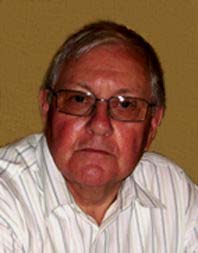 Willy Cuvelier
Willy CuvelierBorn 1941 in Belgium
This email address is being protected from spambots. You need JavaScript enabled to view it. I’m a member of the West Flemish haiku circle De Fluweelboom (the sumac). I’m writing haiku in Dutch, French and English.
-
Kapoor, Vishnu
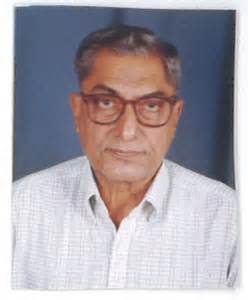
V. P. Kapoor
Born 1941 in India
Living in India
First name Vishnu, a widower at present living in Chennai, India. Interests - Urdu ghazals, philosophy, appreciation of art ( painting ) & literature, and astrology. Composing Haiku since Feb 06 after a chance introduction to this genre of poetry in the Japanese stall at Delhi Book Fair. -
Pacsoo, Jo
Jo Pacsoo
(10 September 1941 – 19 February 2023)
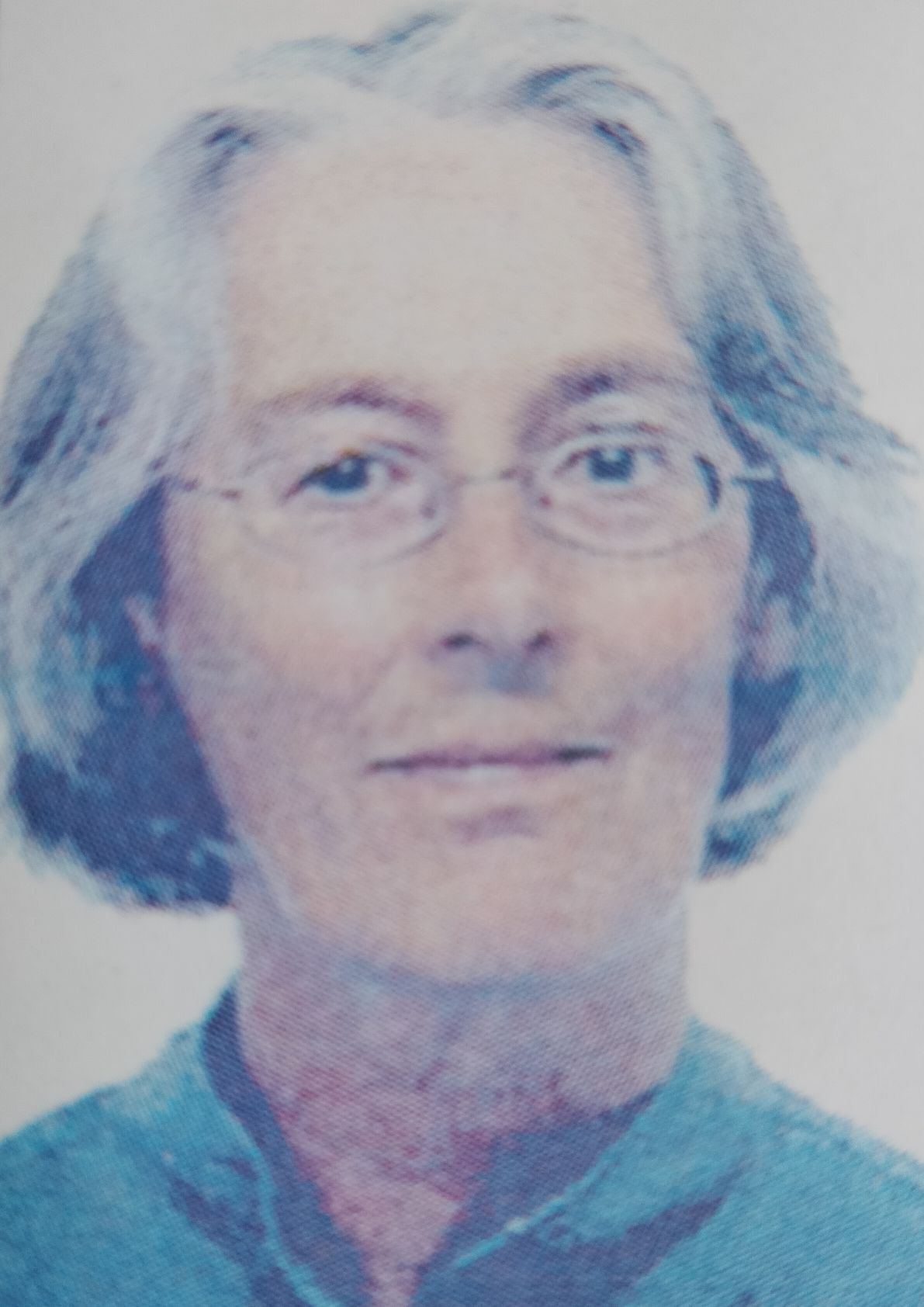 In gratitude to Ruth Lavender and everyone else who attended the Quaker-style Memorial Gathering on Sunday the 12th of March 2023 and to her daughter Tanya & son Mark
In gratitude to Ruth Lavender and everyone else who attended the Quaker-style Memorial Gathering on Sunday the 12th of March 2023 and to her daughter Tanya & son MarkI corresponded with Jo in the 1990s as part of a small group sharing and work-shopping haiku. I first met her in the early 2000s when the British Haiku Society had organised a walk along The Tarka Trail in Devon, staying in various lodgings along the way. As Jo lived in Cornwall, she was able to meet us half-way and continue to the end of the walk. She was a seasoned and strong walker and a pleasure to be with. My strongest memory is of her getting off the bus on the way back before the rest of us: she just had to give everyone a hug as she left.
In 2007, a couple of years after her partner, Frank, died, she moved to Skipton. Her touching haibun (Last Words) about his death was published in Blithe Spirit Vol. 17 No.3, p.32. Before moving from Skipton to Hebden Bridge a year later, she hosted a meeting of the Yorks/Lanks group. She’d lived in Hebden Bridge earlier in her life.
I began to visit her about once a month and we had much joy in sharing haiku, as well as thoughts about haiku and Buddhism. It felt so natural and easy to hug whenever I arrived or left.
It’s easy to see from Jo’s best haikai that she was very intuitive. She kept in touch with her friends who first took Refuge in the Buddha with her on a retreat in Wales in the early 2000s (I think*). This was mainly by phone as they were all from different parts of Britain. But there was one of these friends in particular who she had a deeper connection with and one day she told me this friend had died. Jo had known about this before anyone told her because she felt it the moment this friend passed away.
In 2016 she suffered a stroke and lost sensation in her left arm and leg. She hated being in hospital and wrote an ironic and humorous haibun, Grapes and Silenceabout it. This is included in her last solo book, Wandering(2017).
I visited her several times in hospital and, when she came home, more often than before. We’d chat as usual, then make lunch and afterwards walk in the nearby woods along Hebdon Water. Although she had many Alexander Technique lessons, Reiki and Acupuncture treatments, both her left arm and leg remained stubbornly numb. But she was determined to continue with her walks.
Ruth Lavender writes:
… within weeks of getting home from hospital, she was out and about, doing the things she enjoyed, and proving her ability for independence again. I was astonished at how well she recovered and took back her life, getting out for walks by the river, and even up to Heptonstall - a long steep climb that many people less than half her age wouldn’t attempt!
*The retreat is recorded in her book, Earth Time Water & Sky, 2005
We didn’t see each other much during lockdown as we had differing views about keeping physical distance. So we kept in touch with phone calls, letters and texting haiku to each other. In November 2022 she had a mild heart attack and was in & out of hospital over a period of 10 days or so. When she was finally discharged she had so many health visitors etc, that she needed to rest or just have a quiet time when they weren’t there. She died on the morning of Sunday the 19th of February. A friend surmised that Jo got up and unlocked the door as she was expecting another friend to deliver some herbal remedies. She then went upstairs again to get dressed. The person who was bringing the herbal remedies called her and when there was no answer she went to the bedroom discovered Jo’s body. The cause of death was probably a heart attack.
Her son and daughter contacted me when they arrived at her house and said there had to be an autopsy to establish the cause of death as no one was with her when she died. Her son and daughter were going to see the coroner on Friday the 3rdh of March. At the time of writing there’s no confirmation of the cause of death.
Some of my favourites:
otter prints
left in the sand
a broken eggshell(Blithe Spirit Vol. 24 No.4)
man at the bus stop
the smell of grandmother’s
rheumatism ointment
(Big Field, collection 2021)the quiet of fading day
a fox cub
in the open doorway(Earth Time Water & Sky, collection 2005)
woods free of people
embraced by a beech tree
at dawn(Time Haiku#52)
The last haiku refers to a particular experience. Ruth Lavender again:
She didn’t like to eat lunch at cafés because she felt she made too much of a mess, though she did enjoy a hot chocolate and a pastry outside at Hebden Bridge Railway station.There is a tree accessible from one of the paths behind the station, which has grown in such a way that the large trunk forms a niche that is just big enough for a small adult to sit in. To me this will always be Jo’s tree! We would walk that way, and she would scramble up to sit in the tree, surrounded, and with the world outside dampened by the protection of the tree - and she would recite a long Buddhist poem as a prayer while sitting in the tree niche.
Someone else at the memorial said that Jo said she’d like to die sitting in that tree and let it grow around her. This person also used to massage her feet; he said that if she was in a grumpy mood when he started, she would be smiling before he finished. Several other people made references to her taciturn nature, as well as to her need for hugs. A particular man and Jo evolved a unique way of hugging: as he breathed out she breathed in and vice-versa and, in this way, his belly went out as hers went in, hers went out as his went in. They once spotted each other in the street and he crossed over and they had one of these hugs there and then. Jo wasn’t generous with her hugs; she was also thoughtful and generous with possessions she no longer had a use for. On one of my visits we took her sleeping bag and some blankets and clothes to the park to give to some people sleeping rough in a concrete shelter.
More memories from Ruth:
I first met Jo at Ralph’s group, and later she attended Hebden Bridge Quaker meetings for a time, before falling out with Hebden Bridge Quakers [Jo went to Quaker groups when there was no Buddhist group which had enough in common with her Tibetan tradition nearby]. I know she valued lasting connections with Skipton Quakers. One time when I was with her, she'd got upset and shouted, and I knew it wasn't really at me. As usual she rallied round and apologised, and I said to her "I can cope with being shouted at, even if I'd rather not, but if you throw anything at me I'm throwing it right back at you!" and she laughed, it was a lovely moment. I can imagine she was visualising, as I was, us picking stuff up and hurling it at each other, with no regard for age or other frailties.I'm grateful Jo had meaningful connections with so many people. She could feel so alone, and yet nearly every day someone visited or phoned her.
The memorial began with Ralph leading us in singing a short Taizé song (sung in parts or as rounds and repeated until the singing comes to a natural end). He did the leading in a gentle way with a steady beat that made it easy to follow and join in. These songs occurred a few more times, when it seemed right. Ralph also told a little story about Jo visiting the Taizé group after her stroke (when she’d lost her sense of pitch): as the group was singing he noticed her moving forwards and backwards in time to the music with one hand on her heart. Ruth tells me it would have been a Dance for Universal Peace. When this is done with a group of people they form a line with one hand on the heart and the other on the shoulder of the person in front.
In her last few years Jo often said she didn’t want to live any longer, though she wasn’t suicidal. She kept a do not resuscitatecertificate in full view in her living room and carried a copy with her when she was out waking. Her daughter told me these thoughts went back further than I’d thought. On reflection, I have the feeling they date back to when Frank died, and probably became more powerful after she intuited the death of the friend she took first refuge with on the retreat in Wales.
Write-up by Fred Schofield
Publications:
- Earth Time Water & Sky, Jo Pacsoo (Palores Publications, 2005)
- Chiaroscuro, Jo Pacsoo (Palores Publications, 2009)
- Wandering, Jo Pacsoo (self-published, 2017)
- Big Field, Jo Pacsoo, Stewart Metcalfe & Fred Schofield (Hub editions, 2021)
Selected poems:discussing funerals
a grey wagtail sings
in an oak treea kingfisher
flashes past
the still heron’s reflection(Time Haiku #47)
reflections
at a holy well – the taste
of wild watercontemplating
death the yellowness
of kingcupsinto the slow dawn
of the shortest day
wild geese(Beyond Words/Отвъд думите, Farago, 2018)
after the waterfall
the quiet wood
drips mosssilent in starlight the frozen pond
(Blithe Spirit Vol.22 No.2)
a skein of geese
unfurls the sky
saltmarsh stillness(Blithe Spirit Vol.24 No.1)
waterlogged trees
lean into the river
a dazzle of crocus(Blithe Spirit Vol.24 No.2)
tumbled stones
cushioned in moss
the river’s rush(Presence #52)
-
Wilson, Billie
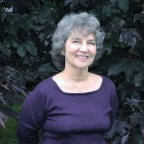 Billie Wilson
Billie Wilson(born August 1, 1941, Lafayette, Indiana, U.S.A.) is a long-time member of the Haiku Society of America, and served several terms as Regional Coordinator for the Alaska Region. Since 2003, she has coordinated the annual haiku competition honoring her first mentor, Robert Spiess. She helped create and care for The Haiku Foundation's Haiku Registry (2009-2018). She served as Associate Editor for The Heron’s Nest (2011 - 2017). Some of her awards include the Harold G. Henderson Memorial Award, the Gerald Brady Memorial Award, and The Heron's Nest Readers' Choice Poem of the Year. She has resided in Juneau, Alaska, since 1962.
